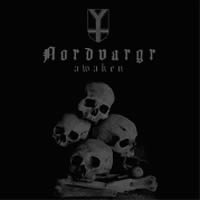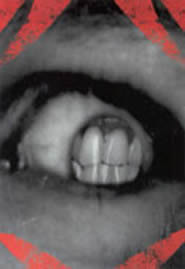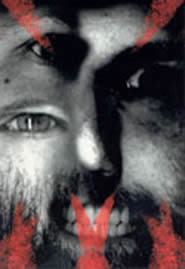 Fabrizio Garau (FG): As a review also dealing with postmodernism, we are interested in electronic music and in the “sampling culture”. You were one of the prime movers of this culture: why did you choose this way of expression?
Fabrizio Garau (FG): As a review also dealing with postmodernism, we are interested in electronic music and in the “sampling culture”. You were one of the prime movers of this culture: why did you choose this way of expression?
Henrik Nordvargr Björkk (HNB): Simply because the technology was available and we thought that it was interesting — both in the technical sense and in the new possibilites that sampling created…
FG: You started in the Eighties, when the word “minimalism” was associated to electronic music. “Awaken” maintains this minimal approach. It’s a conscious aesthetical move or do you simply follow your instinct?
HNB: In a way I am following a conscious approach to what I do, but it is also a lot of improvisation (which can be a kind of instinct). Lately I have tried to break free of my usual creative process and try to use new ways of recording and new sources of sound, so maybe you can say that I am more into “instinct” now than I was a few years back…
FG: “Awaken” is co-produced by Eibon Records and Code 666. Code 666 is a label which focuses on contamination between black metal and electronic/experimental music, and it is not the first time you “meet” black metal. Regarding such a kind of issue, I perceive you have some sort of “feeling” in common with bands like early MayheM, Burzum, Darkthrone. How would you describe this particular “feeling”?
HNB: I used to listen almost exclusively to black metal some years ago, but the scene went boring and too commercial and I lost interest of it… I still enjoy a few bands in the genre (like Forgotten Tomb, Shining, Naer Mataron to name a few), but nowadays I am more into the noise and experimental side of music.
 FG: In “Awaken”, “Seeds of blood” represents the most complex track, and it’s even different from the other seven episodes of the album. It seems that you used a lot of sources in order to sample voices, music, noises, percussions. Could you please reveal something about the creation of this track?
FG: In “Awaken”, “Seeds of blood” represents the most complex track, and it’s even different from the other seven episodes of the album. It seems that you used a lot of sources in order to sample voices, music, noises, percussions. Could you please reveal something about the creation of this track?
HNB: No, not really… only that it took a long time to arrange it and get it together.
FG: I can’t ignore that you are involved in many musical activities. “Sleep Therapy” seems a very ambitious project: could you tell me something about it?
HNB: The “Sleep Therapy” project is a serious attempt to create soundscapes that affect your sleeping and dream patterns. The box that Old Europa Café released contains seven “treatment” CD´s, one for each night of the week, a t-shirt and an eigth bonus CD.
I have experimented with theta/delta frequencies that affects the brain, and mixed them together with ambient and relaxing music. The result is interesting to say the least…
FG: I’m always interested in the relationship between musicians and their social context.
Swedish Welfare State is a model for Europe.
Sweden has serious problem with drunkenness and depression or suicides. The government provides to satisfy material needs, but something “spiritual” doesn’t work.
I would like to know your opinion about it, especially because your music seems to me a way to exorcize a certain inner disease.
 HNB: There is no inner disease in me, but I would probably feel bad if I didnt have the music as an outlet for my feelings… as for the Swedish welfare state; I will not go into details about this since it would become a small book, but the “welfare state” that you
HNB: There is no inner disease in me, but I would probably feel bad if I didnt have the music as an outlet for my feelings… as for the Swedish welfare state; I will not go into details about this since it would become a small book, but the “welfare state” that you
are referring to does not exist anymore… the system is crumbling. But problems with drunkenness? Naaahhh.. that the Finnish people…

